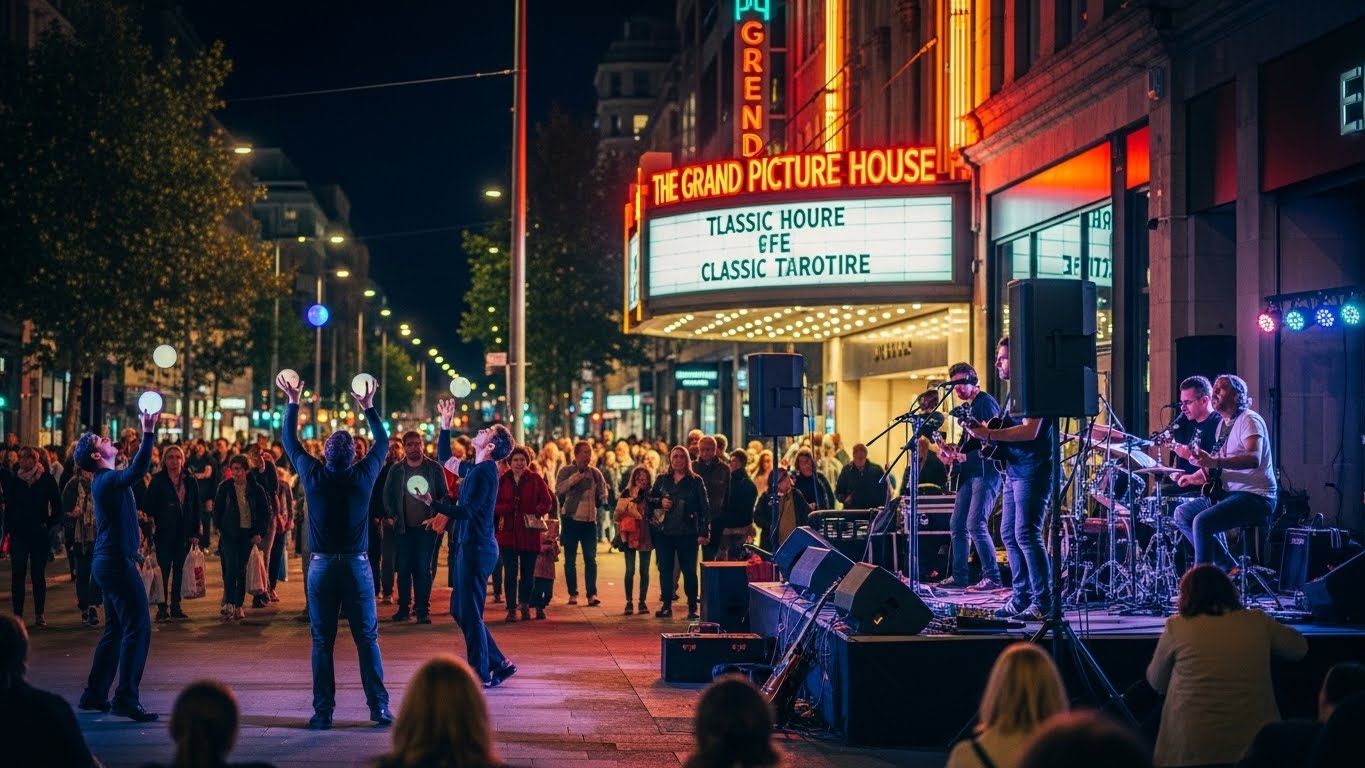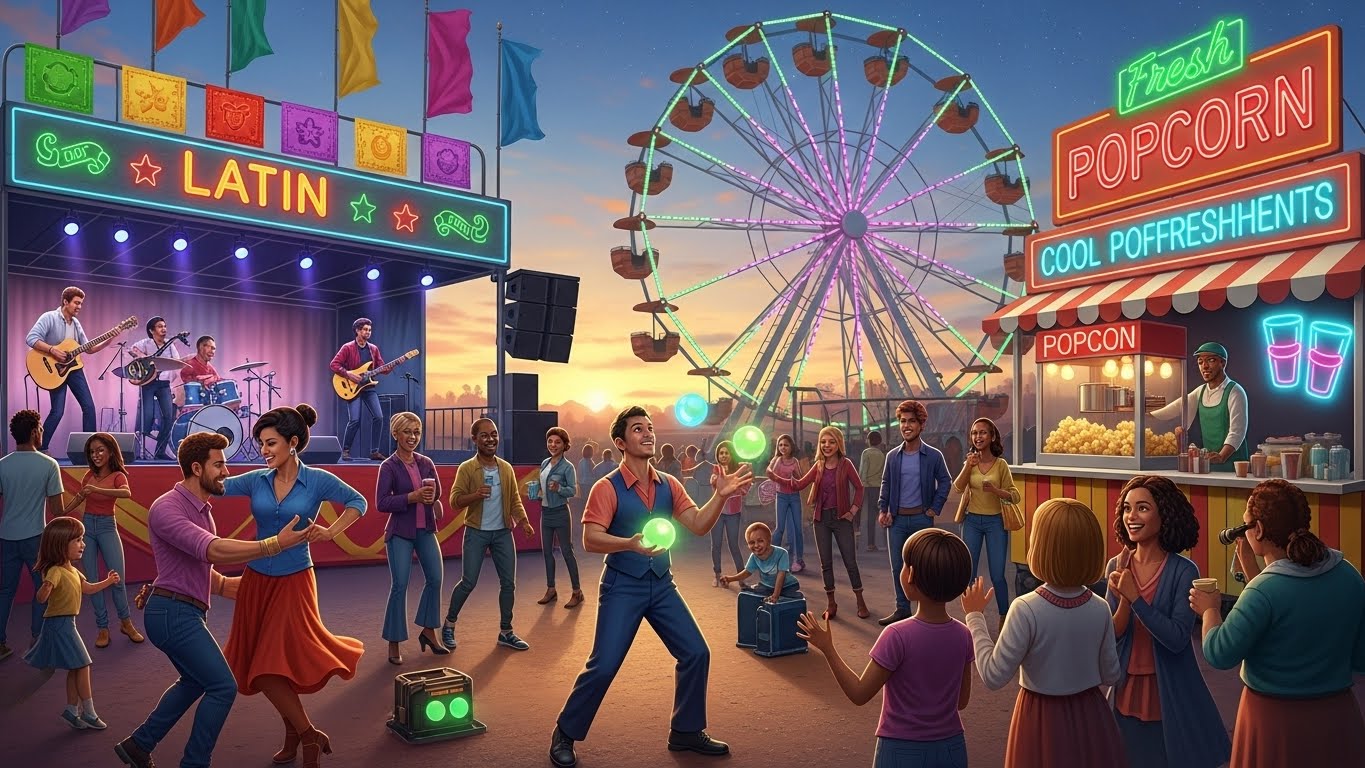Entertainment has always been a cornerstone of human life, providing both a reflection of culture and a much-needed escape from daily routines. From ancient forms of storytelling to the blockbuster films of today, entertainment has constantly evolved to fit the times. In the digital age, technology has reshaped how we consume entertainment, leading to new opportunities, challenges, and experiences. In this post, we explore how entertainment has evolved over time and where it is headed in the future.
Traditional Entertainment: The Foundation of Leisure
Before the digital era, traditional forms of entertainment like books, theater, radio, and television were the primary ways people sought enjoyment. These mediums were not just pastimes but also reflections of cultural moments and societal values. The cinema, for example, became a major cultural institution in the 20th century. Iconic movies like Gone with the Wind and Casablanca captivated audiences for hours, becoming central to the collective imagination.
Television, which became mainstream in the 1950s, revolutionized the entertainment industry by bringing entertainment directly into people’s homes. With the advent of cable networks in the 1980s, the diversity of available content expanded significantly, offering everything from sitcoms and drama to music channels and 24-hour news stations. Meanwhile, radio was an integral part of daily life, shaping music, news, and even politics in ways that still resonate today.
In these traditional forms, entertainment was something experienced at set times and in communal settings—movie theaters, living rooms, or public spaces. People had to make a conscious choice about how and when to engage with these forms of entertainment, and often, it involved a shared experience with others.
The Digital Revolution: Changing How We Consume Content
The rise of the internet in the late 20th and early 21st centuries changed everything. The way we consume entertainment no longer depended on time slots or scheduled broadcasts. Instead, technology opened up a world of on-demand content. This shift began with the rise of digital media and quickly accelerated with the advent of streaming services, social media, and mobile technology.
Streaming platforms like Netflix, Hulu, and YouTube have become synonymous with entertainment today. Netflix, in particular, played a massive role in revolutionizing how we access television and film. The idea of binge-watching—watching an entire season of a show in one sitting—has become a cultural phenomenon thanks to these platforms. Now, instead of watching content at set times on a network schedule, viewers can stream movies and TV shows whenever and wherever they want. This flexibility has drastically changed viewing habits, with many people now opting for streaming over traditional cable TV.
Social media platforms like Instagram, Facebook, and TikTok have also become vital parts of the entertainment ecosystem. Content creators can now share everything from funny skits to live-streamed events, providing entertainment directly to their followers. The lines between producers and consumers have blurred, and anyone with a smartphone can become a creator, sharing their content with a global audience.
The Rise of Interactive and Immersive Entertainment
As technology continues to advance, a new form of entertainment has emerged—interactive and immersive experiences. Video games, once considered a niche hobby, have become a mainstream form of entertainment. With the rise of massive multiplayer online games (MMOs) like World of Warcraft and Fortnite, gaming has evolved from a solitary activity to a highly social and competitive one. Players now engage in virtual worlds that offer vast landscapes, intricate storylines, and real-time interactions with others.
Moreover, virtual reality (VR) and augmented reality (AR) are pushing the boundaries even further. VR technology offers fully immersive experiences, allowing players to physically step into virtual worlds. Games, movies, and even virtual travel experiences are becoming more accessible through VR, providing a new way for users to engage with content in a deeply personal way.
AR, which overlays digital elements onto the physical world, is making its mark through applications like Pokémon Go, where users can interact with virtual characters placed within their real-world surroundings. This technology has opened up new possibilities for interactive storytelling, gaming, and education.
These technologies are also making their way into entertainment events. Concerts, theater performances, and art exhibitions are beginning to incorporate AR and VR to provide audiences with more immersive and engaging experiences. The possibilities for entertainment are becoming limitless as we continue to blend the digital and physical worlds.
The Impact of Social Media on Entertainment Consumption
Social media has changed not only how we create entertainment but also how we consume it. Platforms like TikTok, Instagram, and Twitter offer entertainment in short, bite-sized pieces. This new “snackable” form of entertainment has reshaped attention spans and influenced the kinds of content that gain popularity.
Social media influencers, who were once considered just ordinary individuals, have become major players in the entertainment industry. With millions of followers, influencers now shape trends, create viral content, and even launch their own media empires. This shift has democratized entertainment creation, allowing anyone with creativity and a platform to reach a global audience.
Additionally, social media has revolutionized the way people interact with their favorite celebrities, TV shows, and movies. Audiences can now engage directly with stars on platforms like Twitter, sharing their opinions and reactions in real time. Television networks and film studios also use social media to promote their content, making it a key tool for marketing and fan engagement.
Entertainment in the Future: Artificial Intelligence and Beyond
Looking to the future, the role of technology in entertainment is only going to become more significant. Artificial intelligence (AI) is already being used to personalize content, recommend shows, and even assist in content creation. AI-generated music, art, and even films are starting to make their way into the entertainment industry. This could open up new creative possibilities, allowing artists to collaborate with AI to create entirely new forms of art.
Another exciting development is the potential for 5G technology to revolutionize entertainment consumption. With 5G, we can expect to see faster streaming speeds, more stable connections for live events, and an overall improved experience for gaming and virtual reality. The technology could also allow for more real-time interactions in live entertainment, such as concerts and sports events, providing audiences with an even more immersive experience.
Moreover, entertainment could become even more personalized in the future. Imagine a movie that adapts to your choices as you watch, or a video game that changes based on your emotional reactions. With advancements in AI and machine learning, the entertainment experience could become completely tailored to the individual.
Conclusion: A New Era of Entertainment
Entertainment has come a long way from its traditional roots. What started as simple forms of storytelling and leisure has now evolved into an intricate web of digital, interactive, and immersive experiences. Technology has given audiences more control over when, where, and how they consume content, while also opening up new avenues for creativity and storytelling.
As we look to the future, it’s clear that the entertainment industry will continue to evolve alongside technological advancements. From virtual reality and augmented reality to AI and social media, the possibilities are endless. One thing is certain: the world of entertainment will remain at the cutting edge of cultural and technological change, offering audiences new ways to connect, engage, and experience the world around them. The future of entertainment is here, and it’s more exciting than ever before.



